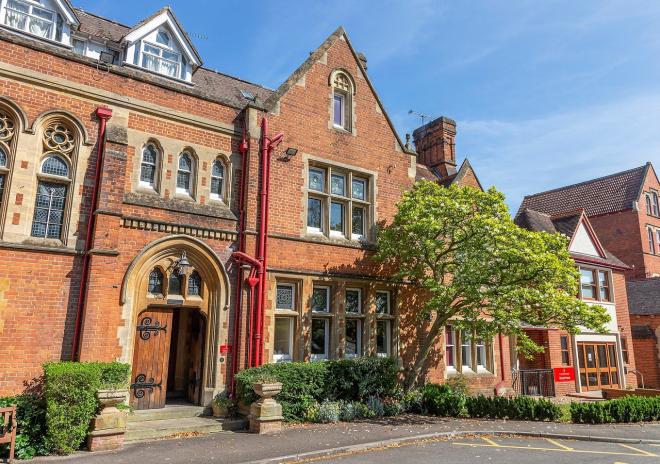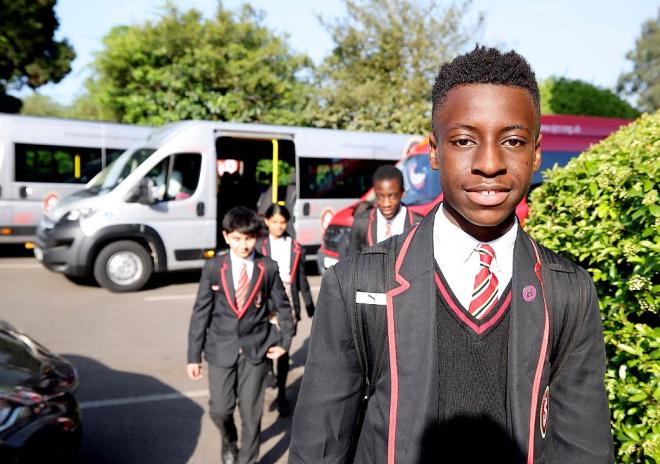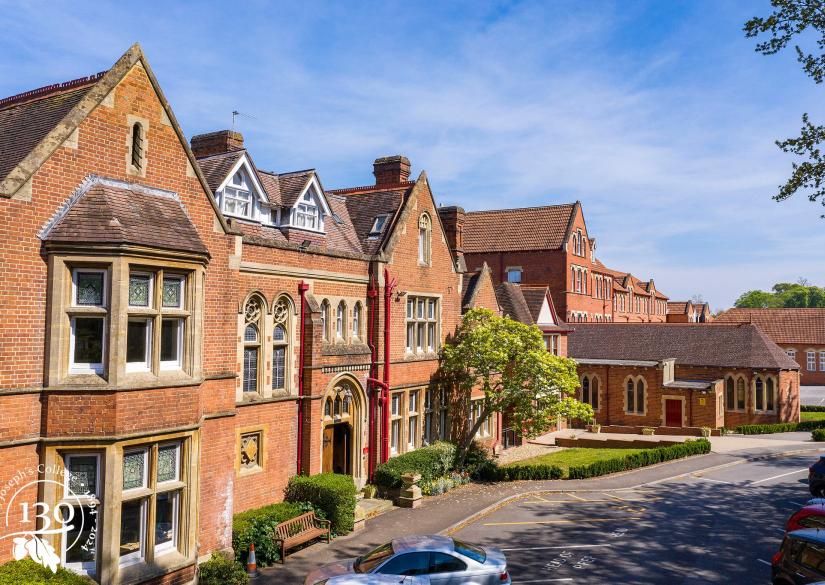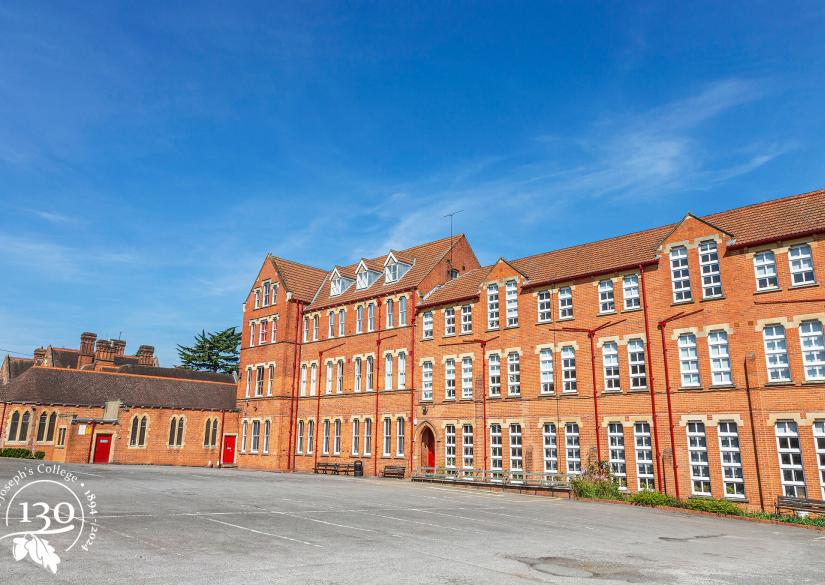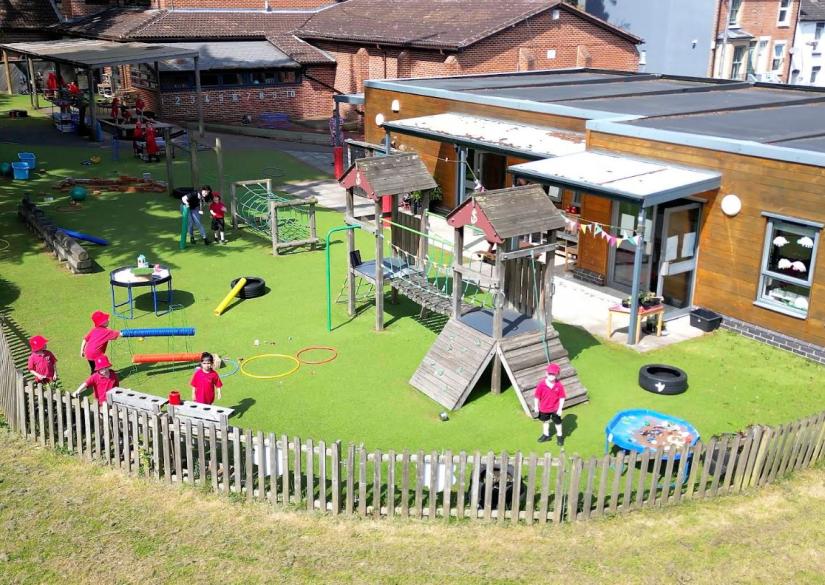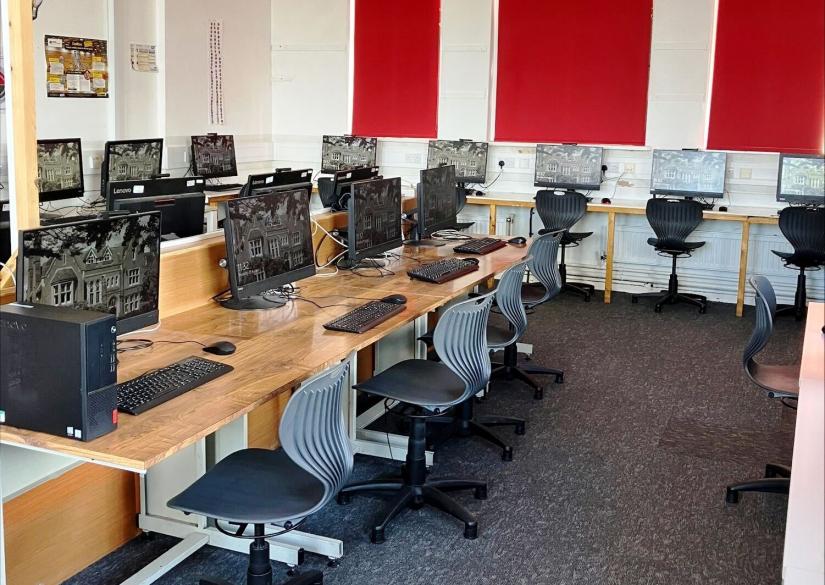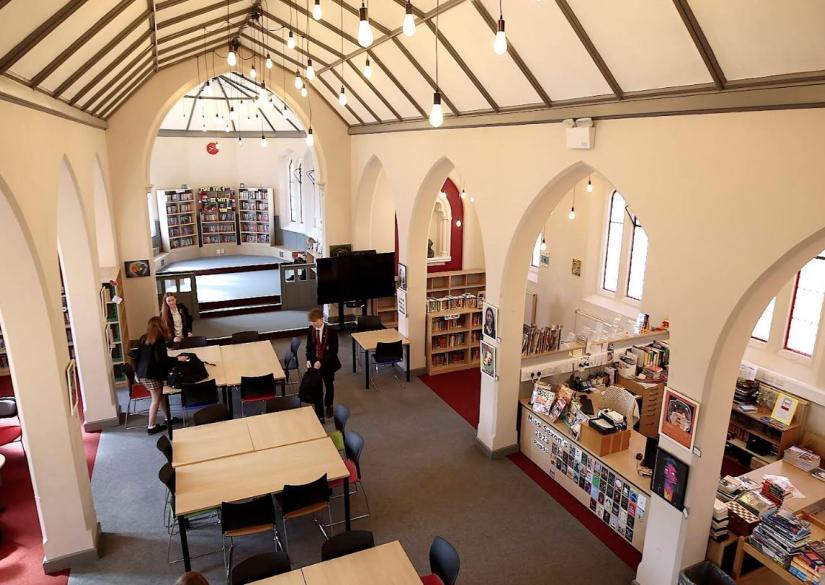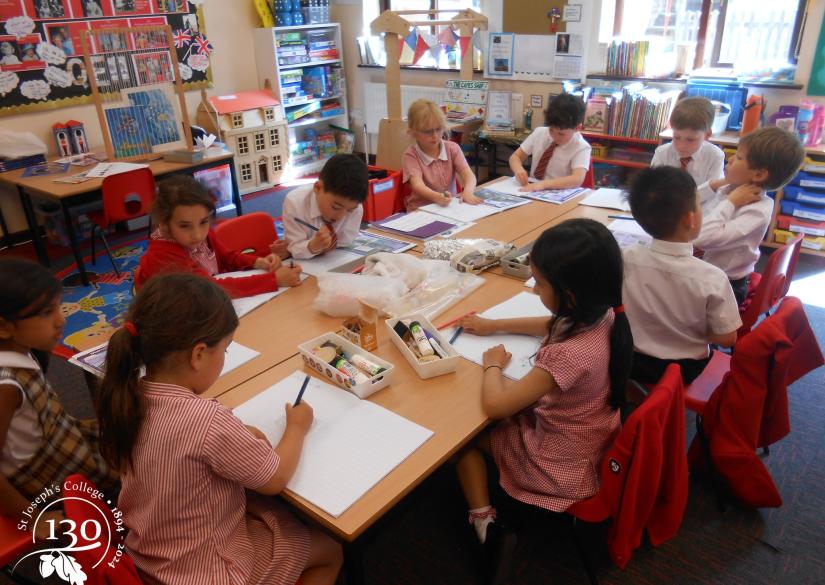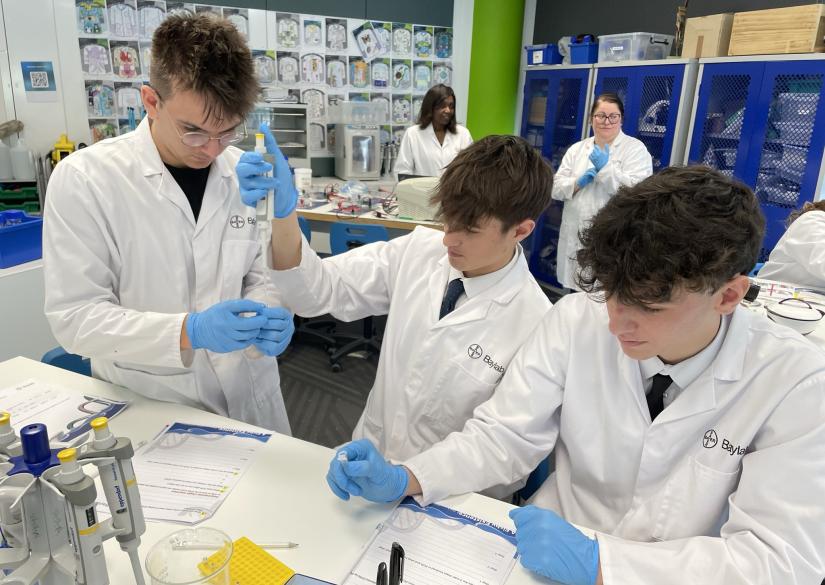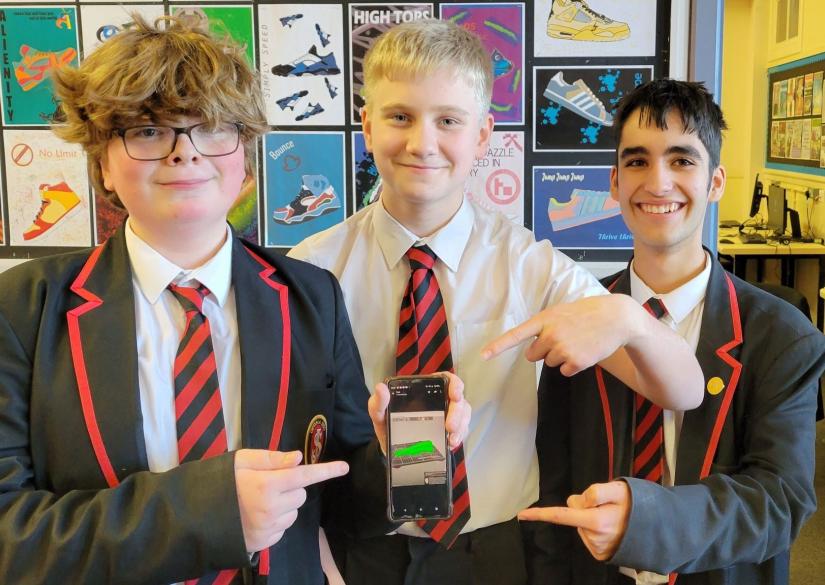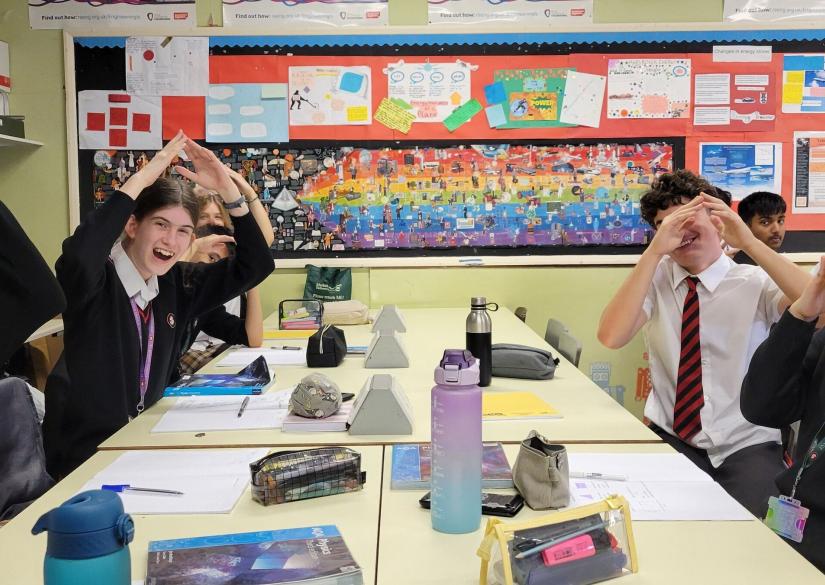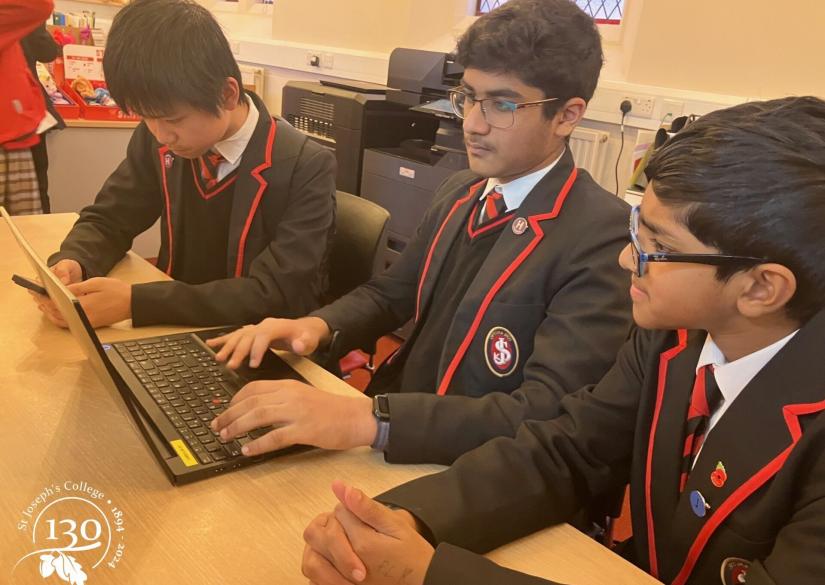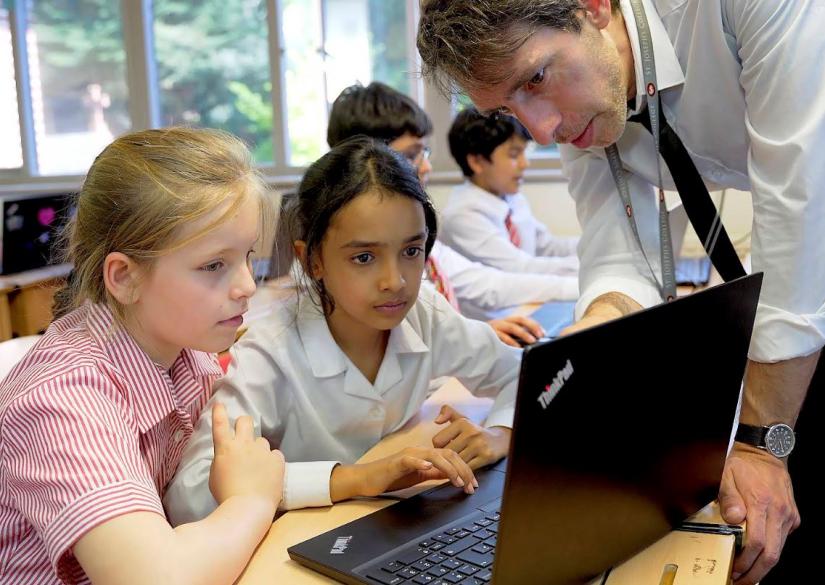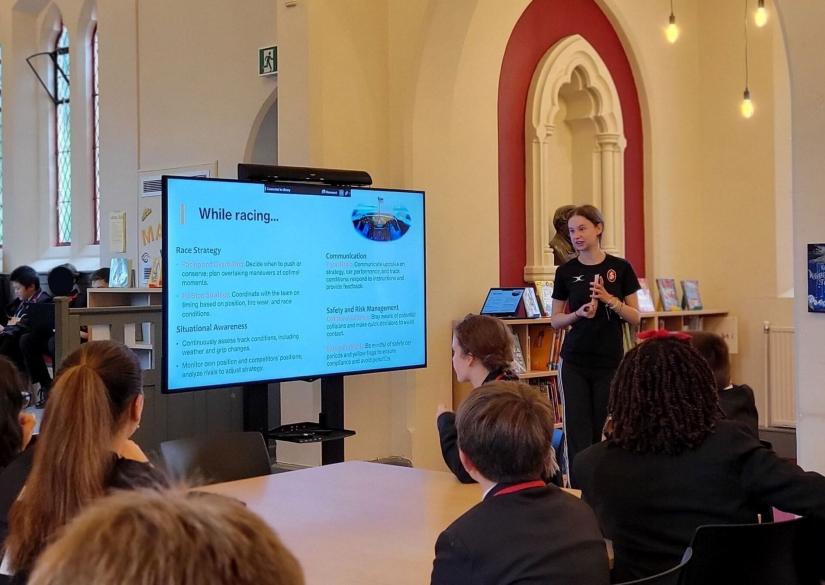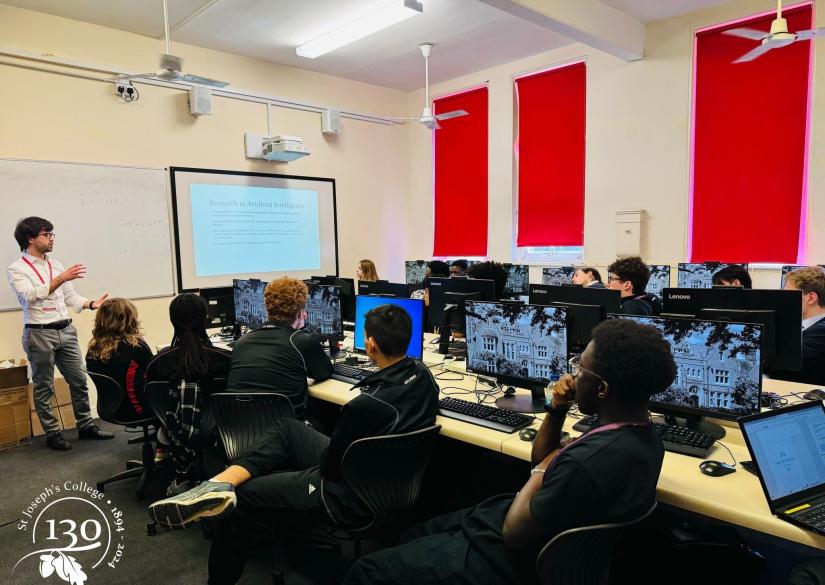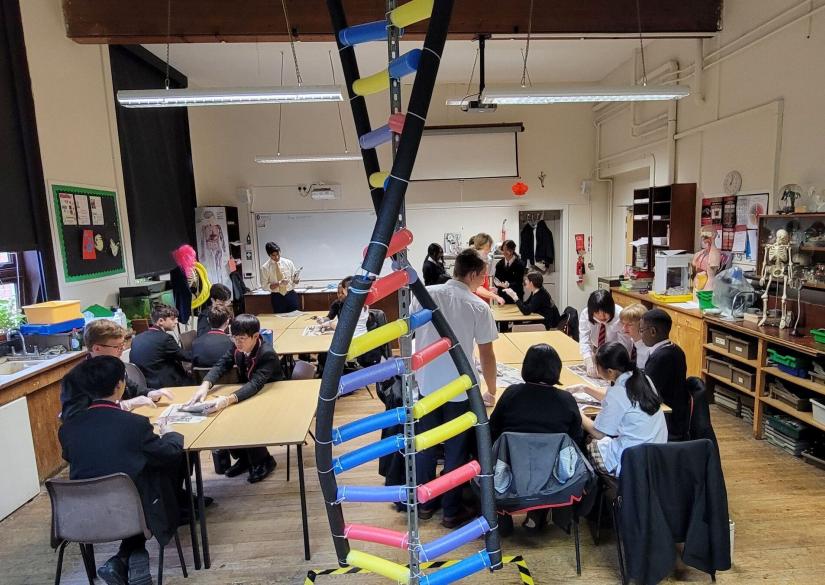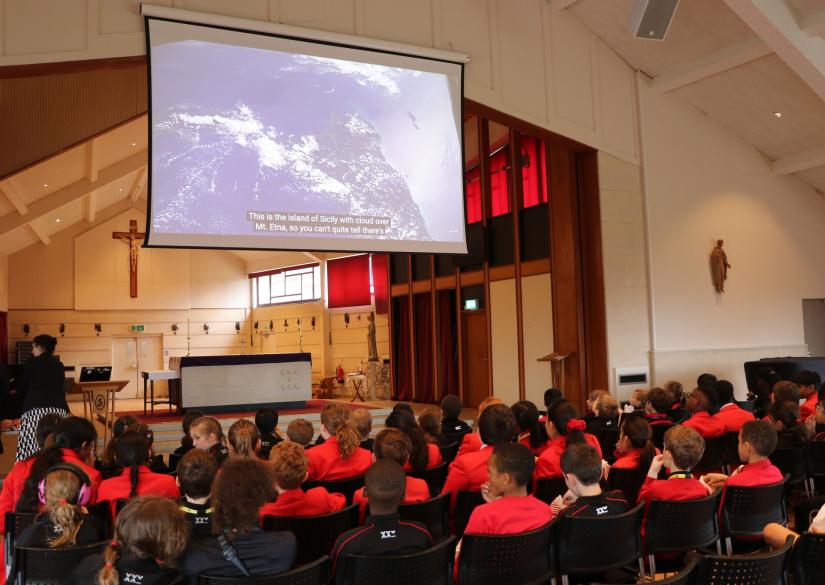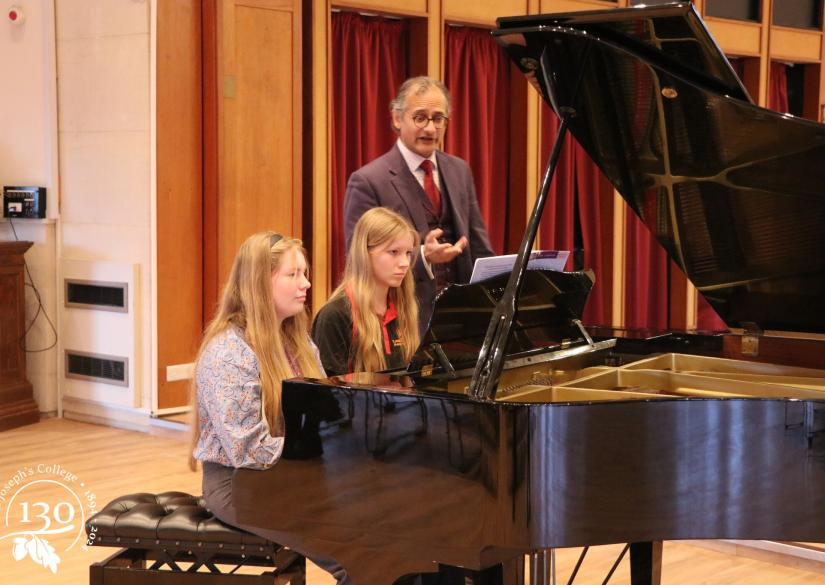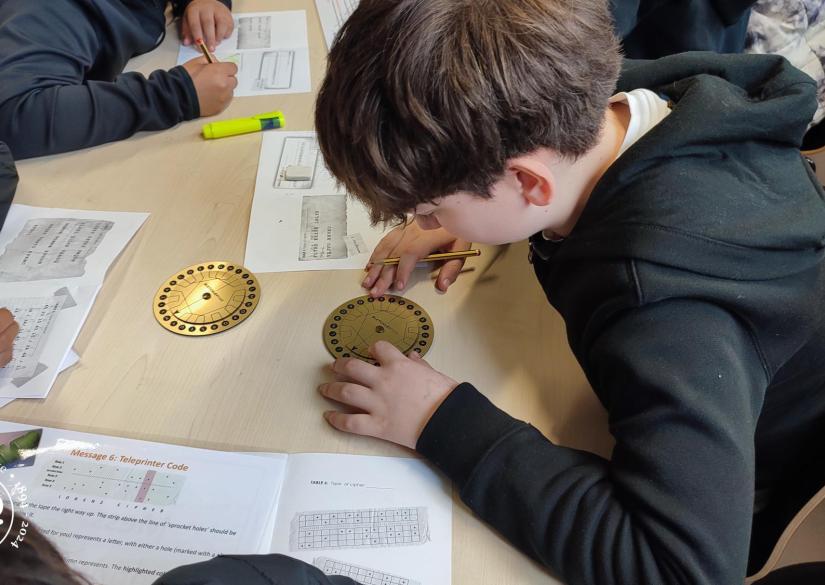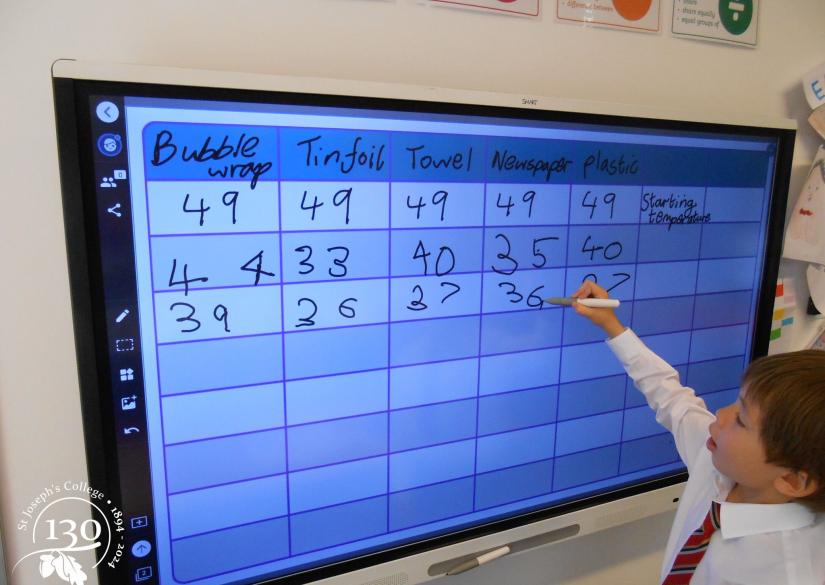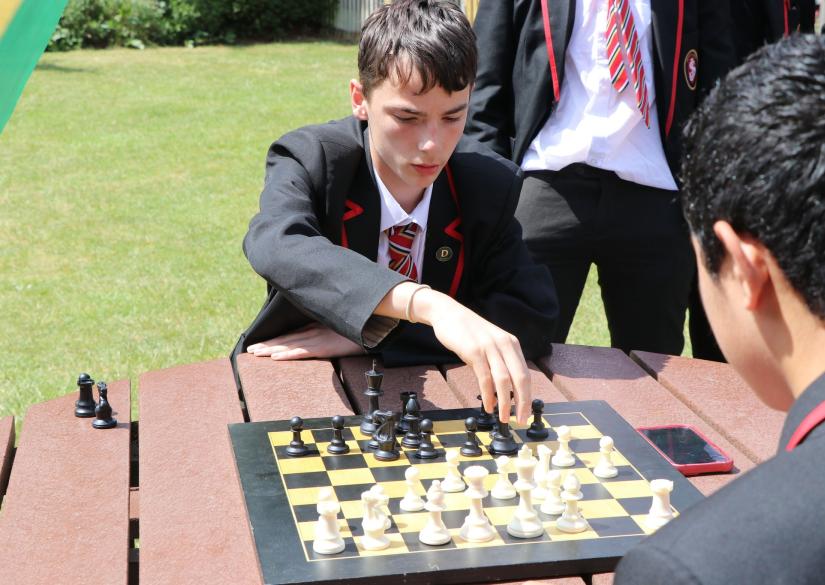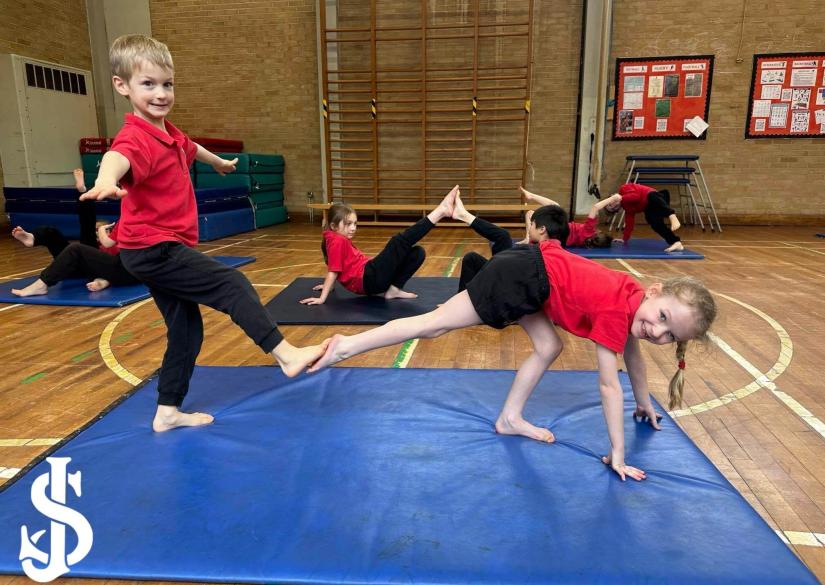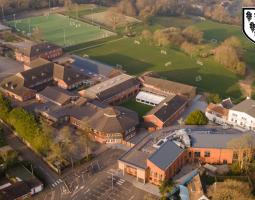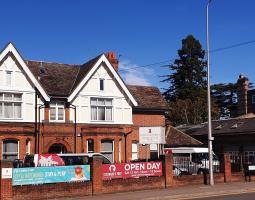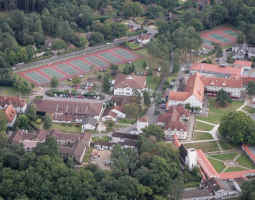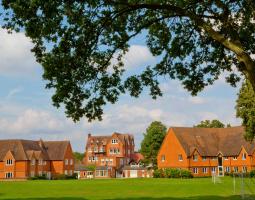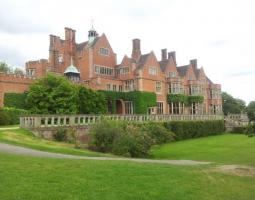St Joseph's College Reading, St Joseph College Reading
Programs and prices, tuition fees in St Joseph's College Reading, St Joseph College Reading
The Acorn Centre
- The age of students is 3-4 years.
This is an introductory program for children that allows toddlers and their parents, guardians to get acquainted with school life and interact with staff. Prospective students of St Joseph's College Reading can attend the Preparatory Centre throughout the year, where they will be taught a basic skill for further school, as well as many excursions and recreational activities. During their entire stay at Acorn Centre, the little ones will visit:
- Beale Park,
- Norden Farm Arts Center,
- Local lakes,
- University of Reading.
Year 1–6
- The age of students is from 5 years old.
- The period of study is 6 years.
For the first two academic years, children continue to develop their educational base, which appeared in their preparatory groups, become more independent both academically and personally. Teachers organize classes for kids with a practice-oriented approach: children solve problems and conduct research, master grammatical skills, learn mental arithmetic and memorize mathematical formulas. In the course of active discussions in the classroom, kids develop their analytical and critical types of thinking.
The main list of subjects of the two classes includes:
- Physical education,
- Music
- French
- Literature.
In addition, children are introduced to creative subjects, scientific laboratories and computer classes.
From grades 3 to 6, the number of basic disciplines for children increases: in the classroom, they study not only with the class teacher, but also with subject teachers.
Year 7–11
- The age of students is from 11 years old.
- The duration of studying is 5 years.
Adolescents are taught according to strategic methods that have proven their effectiveness in practice. Thanks to the combination of traditional formats with modern ones, students become more responsible and prepared for high school.
In the middle school stage, teachers adhere to the academic rigor and discipline that they instill in students. Teenagers can consolidate the knowledge gained in the classroom at additional extracurricular activities: they include sports competitions, excursions and entertainment shows.
Sixth Form
- The age of students is from 16 years old.
- The duration of studying is 2 years.
In high school, teenagers have an extensive list of subjects from which they can choose several for future final exams. They will study the chosen disciplines at an in-depth level in order to go beyond the framework of classical school textbooks. Usually, students decide on three subjects, in which they will receive an extended qualification; Information about this and about the grades for the exams will be indicated in the certificate.
In addition to exams, the graduation document will indicate the topic of the practical project that teenagers perform in high school. The project consists of research, analytical, and sometimes empirical parts. The main task of this work is to strengthen the love of teenagers for the learning process itself, which will help them in the future when they enter universities. Successful creation of such a project is equivalent to one AS level and earns up to 28 UCAS points. The topics for the works of schoolchildren are determined by the staff, the list of options is updated annually.
Description of St Joseph's College Reading, St Joseph College Reading
- Location: Reading, United Kingdom,
- Founded in: 1894,
- Language of instruction: English,
- Type of studying: mixed.
St Joseph's College Reading is a Catholic independent day school accepting children from 3 to 18 years old.
Students go through four educational stages: preparatory, primary, middle and high school.
In 2022, in May, a full examination from the ISI inspection took place here. Based on its results, the commission concluded that students demonstrate a good level of knowledge in all disciplines and are able to use theoretical knowledge in practice, and a comfortable, supportive and open atmosphere reigns in the team.
St Joseph's College Reading is a member of the Society of Heads, Independent Schools Council.
Things to know about
- In 2018, the leadership of St Joseph's College Reading immortalized its legacy and created 4 extracurricular faculties, they were named after the first students who studied here: Dixon, Hummel, Jennings and Richardson.
- In 2025, the school loudly celebrated its anniversary - 130 years since its opening.
Accommodation, meals, prices
Children and teenagers have a nutritious meal on the school grounds at lunchtime, in the morning and in the afternoon they can additionally have snacks. Lunch meals are prepared by cooks in the school building. Menus are prepared by nutrition experts who take into account all the general and personal needs of students, so that the food at St Joseph's College Reading meets all quality and wholesome standards.
If a child has individual dietary requirements, such as diets for ethical, religious or medical reasons, parents should inform the management in advance and the student will receive a personalized menu.
Activities St Joseph's College Reading, St Joseph College Reading
In their free time, children and teenagers can spend time in hobby groups and sections. For example, there is a STEM science club that is designed for elementary, middle, and high school students. Club meetings are held every week, its members are engaged in practical experiments and projects, which include:
- Preparation
- Creation of gliders,
- Modeling of hydroelectric turbines.
For high school students, the club offers an additional STEM Leaders Level 2 program. If the student successfully completes the semester course, they will receive a certificate, as the program is nationally accredited.
Other extracurricular activities include the Race to the Finish Line event. This is an association of fans of cars and sports competitions: children themselves create life-size cars from foam, and then participate in races on them. Older children design car models from more complex materials, study the rules and history of Formula 1 and compete not only on the race track, but also in theoretical quizzes.
The school invites children to take part in the new HaLE community of interest, which brings together those interested in the humanities, linguistics and economics.
Advantages
- The academic building is small, as are the classrooms, so all teaching staff and children are in a warm, family atmosphere, in daily contact with each other. Teachers know everything about children: from their family situation to plans for the future and big dreams. The staff form the academic process around children, and do not try to adjust their knowledge and talents to a template system.
- St Joseph's College Reading supports traditional learning formats and time-tested curricula, but is not afraid to experiment and use modern educational methods. Students have the opportunity to study disciplines outside of standard textbooks, exchange experience with children from high school and communicate with teachers after school.
- First of all, teachers look at the individual abilities of children, determine their strengths and help to reveal their full potential. The entire academic system here is built on incentives and support.
- CLARITY is a unique program created by the management, aimed at psychological support for students of all ages and even their parents. The project is implemented by teachers through personal consultations, group meetings, short psychological courses, etc.
Facilities and equipment at St Joseph's College Reading, St Joseph College Reading
The infrastructure of St Joseph's College Reading includes such facilities and classrooms as:
- Classrooms
- Dining room
- Concert hall,
- Theatre
- Art studios,
- Computer classroom,
- Kitchen
- Sports field.
Admission dates and extra charges
Additional costs for parents and guardians of St Joseph's College Reading pupils include:
- Registration fees (non-refundable at the end of the course),
- A deposit that will be returned after completing your studies,
- On-site and off-site meals
- Purchase of school uniforms.
Enrolment process
To enroll in St Joseph's College Reading, parents of a child need to fill out an application, pay the registration fee and ask teachers to write a student profile. If all documents are submitted on time, then the child will be invited to entrance exams and an online interview with teachers.
Usually, all stages of admission take place during the fall and in January; If the child successfully passes the interview and passes the exams, then he is invited to join the school family in the next school year.
Perspectives
For students of St Joseph's College Reading, the staff conducts many career guidance classes, where children and teenagers are introduced to specialized terminology, told about different specialties and working conditions, and conduct tests for them. An integrated approach allows students to better understand themselves, their interests and prospects for the future.
Another program aimed at immersing children in the world of professions is the PSHEE project. Its main task is to dispel professional stereotypes in children that are imposed by society. Students learn about how certain specialists actually work at real production facilities, where they go twice a week in the summer.
Other formats and events that help teenagers lay the foundation for a successful future:
- Trial internships in various companies,
- The Career and Future School Fair, which St Joseph's College Reading organises in partnership with employers, universities and colleges.
Scholarships St Joseph's College Reading, St Joseph College Reading
Every year, the director of St Joseph's College Reading holds a competition among students from grades 4 to 10 - the winners receive personal scholarships. This is a competition of creative works, the theme of which changes every time. The maximum prize is £100.
Institution on the map
Residence permits, citizenship and other services
- Guardianship services during the studies
- Student supervision
Review about St Joseph's College Reading, St Joseph College Reading
Recommendations on when to apply
| Language courses, schools and children's language camps | Primary and secondary education - private schools | Preparation programmes for entering universities - higher education | Higher education (after completing accredited programs A-level, IB, High School) - Bachelor, Master, MBA |
| - we recommend to apply 6-9 months before the start of the course (some camps and schools offer discounts for early booking or for lengthy study programs) - there are some very popular and high demand children's camps, where the applications need to be submitted 1 year in advance (in particular Switzerland , Great Britain , USA , Canada , Austria) | - we recommend to apply one year before the start of the training program, - some schools have a specific time frame (September-November - please specify an individual school) - some schools require tests in several stages (UKISET, internal tests of the school: English, mathematics, logics, subjects, interview, some require a personal visit) | - we recommend to apply one year before the start of the program, - for Foundation and Pathway programs, IELTS and TOEFL certificates are usually required, respectively | - recommended submission one year before the start of the program, - the deadline normally closes in January, for TOP HEIs and, as a rule, in March in other universities - for a bachelor, a Foundation or Pathway preparatory program a completed A-level, IB, High School + IELTS / TOEFL are required - for Masters you need a graduated higher education, in some cases you need a pre-Masters program - MBA requires completed higher education, work experience preferably at least 2-3 years, etc. |


